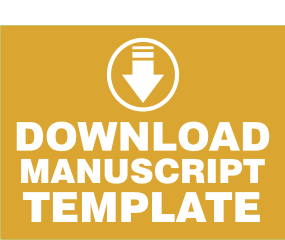The Effect Of Make A Match Type Cooperative Learning Model On Ips Outcomes Of Class Iv Grade Sd Inpres Mangasa I Rappocini District Makassar
(1) Universitas Negeri Makassar
(2) Universitas Negeri Makassar
(3) Universitas Negeri Makassar
(*) Corresponding Author
DOI: https://doi.org/10.26858/ijest.v1i2.22094
Abstract
This research 1) how is the description of implementation of match model learning strategies of fourth grade students at SD Inpres Mangasa I kecamatan Rappocini Makassar 2) How is the result of IPS (social science) learning of fourth grade students at SD 3) Is there any influence of match model learning model towards the result of students' learning in IPS subject at SD. The objectives of this researh are: 1) the description of implementation of match model learning strategies of fourth grade students at SD Inpres Mangasa I kecamatan Rappocini Makassar 2) the result of IPS (social science) learning of fourth grade students at SD 3) The influence of make a match learning model towards the result of students' learning in IPS subject at SD. The research approach uses quantitative with quasi eksperiment research type. The independent variable of this research is the influence of make a match learning model while dependent variable is the result of learning at IPS subject in the topic of living environment and types of economy. The population of this research is fourt grade students at SD Inpres Mangasa I Kecamatan Rappocini Makassar, and the sample is students of class IV A which consists of 24 students at control class and students of class IV B which consists of 24 students at experiment class. The design of this research is nonequivalent control group. The technique of sampling of this research is simple random sampling. While the technique of collecting data in this research is by giving test which is divided into pretest and posttest observasion and documentation. The normality test uses kolomogrov smirnov normality test. The hypothetical test uses T test of Independent Sample with the data from control class and experimental class. The result shows that there is significant influence. The research conclueded that there is a significant influence of make a match learning model toward the result of students’ learning in IPS class fourth at SD Inpres Mangasa I Kecamatan Rappocini Makassar.
Full Text:
PDFReferences
Achmad, W. K.S., Jauhar, St., Nonci, D., & Syawaluddin, A. 2018. Konsep Dasar IPS. Gowa: Agma
Aqib, Zainal. 2014. Model-model, Media dan Strategi Pembelajaran Kontekstual (Innovatif). Bandung: Yrama Widya.
Arikunto, Suharsimi. 2006. Prosedur Penelitian Suatu Pendekatan Praktik. Jakarta: PT. Rineka Cipta
Bundu, P. 2016. Asesmen Pembelajaran (Untuk Guru dan Calon Guru Sekolah Dasar). Padang: Hayfa Press
Destiningsih. 2013. Efektifitas Model Pembelajaran Kooperatif Tipe Make A Match: Jurnal Ilmiah Pendidikan Matematika, (Online), Vol.2 No.1, http://e-journal.ikippgrimadiun.ac.id/ diakses (19 Februari 2021)
Dirman dan Juarsih. 2014. Teori Belajar dan Prinsip-Prinsip Pembelajaran yang Mendidik. Jakarta: PT. Rineka Cipta.
Isjoni. (2013). Cooperative Learning (EfektivitasPembelajaran Kelompok). Bandung Alfabeta.
Khasanah. 2011. Pengaruh Pembelajaran Make A Match terhadap Pemahaman Siswa Kelas X SMA Institut Indonesia Semarang: Jurnal Pendidikan Pembelajaran Fisika, (Online), Vol.2 No.2, http://journal.upris.ac.id/ diakses (20 Februari 2021)
Nasehudin, T.S., & Gozali, N. 2012. Metode Penelitian Kuantitatif. Bandung: Cv Pustaka Setia
Neolaka, Amos dan Neolaka, Grace Amalia A. 2017. Landasan Pendidikan: Dasar pengenalan Diri Sendiri Menuju Perubahan Hidup. Jakarta: Kencana.
Ruhimat, Toto dkk. 2011 Kurikulum dan Pembelajaran. Jakarta: PT. RajaGrafindo Persada.
Rusman. (2012). Model-model Pembelajaran; Mengembangkan Profesionalisme Guru. Jakarta: PT. RajaGrafindo Persada.
Saidah, H. U. 2016. Pengantar Pendidikan. Jakarta: PT. Rajagrafindo Persada
Shoimin, Aris. 2014. 68 Model Pembelajaran Inovatif dalam Kurikulum 2013. Yogyakarta: Ar-Ruzz Media.
Slameto. 2010. Belajar dan Faktor-faktor yang Mempengaruhi. Jakarta: PT. Rineka Cipta
Sulfemi, W. B. A. 2018. Hubungan Motivasi Belajar Dengan Hasli Belajar IPS di SMP Kabupaten Bogor. Jurnal Pendidikan dan Administrasi Pendidikan (Online) Vol.18 No.1. http://jurnal.ut.ac.id/ diakses (10 Februari 2021)
Sumantri, M. S. 2015. Model Pembelajaran Teori dan Praktikdi Tingkat Pendidikan Dasar. Jakarta: PT Raja Grafindo Persada.
Supardi. 2016. Penilaian Autentik Pembelajaran Afektif, Kognitif dan Psikomotor (Konsep dan Aplikasi). Jakarta: PT. RajaGrafindo Persada.
Suprijono, A (2015). Cooperative Learning (Teori & Aplikasi Paikem). Yogyakarta: Pustaka Belajar
Suryabrata, S. 2012. Metodologi Penelitian. Jakarta: PT RajaGrafindo Persada.
Susanto, A (2016). Pengembangan Pembelajaran IPS di Sekolah Dasar. Jakarta: Prenadamedia Group.
Undang – undang No. 20 Tahun 2003 Pasal 1 Ayat 1 tentang Pendidikan nasional. (n.d.).
Universitas Negeri Makassar. (2019) Pedoman Penulisan Tugas Akhir Mahasiswa Universitas Negeri Makassar. Makassar: Universitas Negeri Makassar.
Article Metrics
Abstract view : 49 times | PDF view : 9 timesRefbacks
- There are currently no refbacks.
Copyright (c) 2023 Asriani Asis, Widya Karmila Sari Achmad, Suarlin Suarlin

This work is licensed under a Creative Commons Attribution-NonCommercial-ShareAlike 4.0 International License.
International Journal of Elementary School Teacher
ISSN 2776-6233 (online)
Email: [email protected]

This work is licensed under a Creative Commons Attribution-ShareAlike 4.0 International License.









